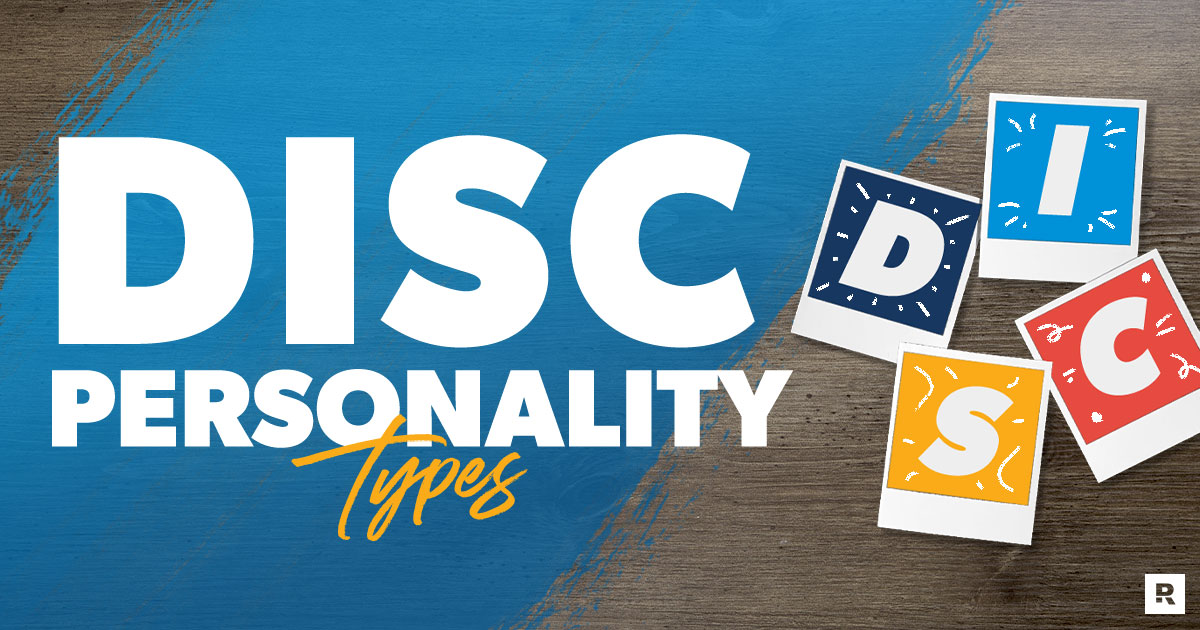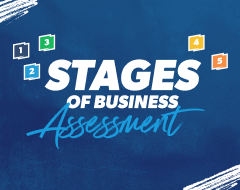
Key Takeaways
D (Decisive/Dominant)
Fast, assertive, and competitive: People who are high D want results now and tend to skip the details. When hiring, they just want to fill the role and move on.
I (Interactive/Influential)
Social, persuasive and fun-loving: These people focus on relationships over details. When hiring, they prioritize personality over qualifications.
S (Stabilizing/Steady)
Loyal, team-oriented, and conflict-averse: A high S person values harmony and takes their time making decisions. When hiring, they prioritize cultural fit and team dynamics.
C (Cautious/Conscientious)
Logical, process-driven, and detail-focused: Someone who is high C wants things done right. When hiring, they take their time finding the perfect fit.
People are your greatest resource and biggest challenge in business, right? You can spend a ton of time and energy just getting them to see eye to eye! It’s enough to make gears grind, sparks fly, and neck veins bulge if you’re not careful.
You probably thought running a business sounded fun—until you realized it would actually run you. Discover the EntreLeadership System—the small-business road map that takes the guesswork out of growth.
What if you could teach your team to be a united we instead of a sea of me’s? Understanding DISC personality types can grease the gears, save your veins, and make your company unstoppable.
What DISC Is (and Isn’t)
When we say DISC, we’re not talking about anything connected to brakes or back pain. We mean how people communicate and where they lean in based on their personality type. And we can tell you confidently that the DISC assessment can help you lead yourself, your team and your customers' experience with less conflict, better communication and a happier work culture.
DISC stands for Decisive, Interactive, Stabilizing and Cautious. (You might’ve also seen the personality types classified as dominant, influential, steady and conscientious.) DISC is a model that clarifies personality traits and behaviors. When you know someone’s personality style, you can communicate with them easier and connect with them faster because you understand how they tick.
Take a look below at the DISC personality types to learn how each style is wired.
D: The Decisive (Dominant) Personality
Decisive people are driven, assertive and fiercely competitive. They’re dominant, hard-charging and want to get stuff done—which means they’re likely to skip the details at first. Many business leaders are high-D personalities. Ds tend to be project-driven, fast-paced and skeptical. (This description is short just for you, Ds.)
About 10% of people are D personalities. Their focus: when
A high D in charge of hiring just wants to fill the spot, check the box, and move on.
Ready to Level Up Your Business?
Find out your Stage of Business with our free assessment and get free resources to help you level up by focusing on the right things at the right time.
I: The Interactive (Influential) Personality
You know the interactive personalities, the influencers. They’re the fun-loving, sociable, persuasive ones who love to play. Put them in a room by themselves to work, and they just might have a breakdown. The I personality may not naturally stay focused on details and tasks, but they’re definitely focused on others. Interactives know what’s going on with their team members and care deeply. They’re people-oriented, fast-paced and accepting.
About 25% of people are I personalities. Their focus: who
A high I in charge of hiring wants to hire someone they like and is less concerned with their specific skills.
S: The Stabilizing (Steady) Personality
Stabilizing, or steady, personalities are loyal team players who like to get along with everyone. They’re supportive and have strong active-listening skills, which helps others feel calm and steady too. Stabilizers are often slow at decision-making and are allergic to conflict and tension. (Pro Tip: As a leader, be careful not to plow them over. S team members often have great ideas and insights, but you’ll need to draw those out of them and challenge them to speak up in groups.) S personalities are people-oriented, moderately paced and accepting.
About 40% of people are S personalities. Their focus: why
A high S in charge of hiring wants to make sure the candidate understands the company’s culture and will get along with others.
C: The Cautious (Conscientious) Personality
Cs are focused on procedure, logic and making sure things are done the right way. Processes, rules and structure are their love language. Give a cautious personality good data to inform their decisions, and they’ll solve problems like nobody’s business. They may seem rigid and ask a lot of questions, but it’s all in the name of accuracy and excellence. C personalities are project-focused, moderately paced, and tend to be more skeptical (go figure).
About 25% of people are C personalities. Their focus: how
A high C in charge of hiring is looking for the perfect fit in attitude, skills and proven performance—even if it takes a long time to find the right person.
How to Build a Bridge With the 4 DISC Personality Types—Literally
Let’s look at an example to see all four DISC personality types in action. Pretend you lump each personality into its own group and tell them to build a bridge. Here’s what might happen next:
The D personalities say, “Cool! Bye.” They’re leading the charge to make stuff happen. Your Ds don’t sweat the details, and perfection will not get in the way of progress. It’s go time!
The I personalities also say, “Cool! Bye. Details, schmetails.” All they need to know is that people and a party are on the agenda. They’re creating the press release, ordering the balloon arch, and preparing for the conga line across the finished bridge.
The S personalities immediately think, Why are we building a bridge? Does the whole team know? How do they feel? Once convinced the mission outweighs any conflict, they’re rolling up their sleeves and staying strong to the finish.
The C personalities fire out enough questions to make a 4-year-old stalling at bedtime tired, but it’s always in the name of accuracy and progress. What kind of bridge? Do you want concrete, steel or wood? Will it face north to south or east to west? What’s your budget and timeline? Give them all the details, and they’ll help you build something way better than you ever expected.
So, which group do you need to get the best result? That’s right—all of them. And as the leader, you get the privilege of guiding the communication flow to create more we than me.
Pro Tip: Never use any assessment tool alone to rule out team members for certain positions or promotions. For example, not every leader has to be a high D.
Why You Should Use the DISC Assessment in Your Business
Creating a we mentality essentially means building unity, and that’s what makes teams unstoppable. As you build trust with your team and show that you value them, you’ll be amazed at how much easier you can find that common ground.
A recent study found that 61% of millennials and 49% of Gen X dread Mondays and the thought of going in to work. In the same study, these groups shared that it’s extremely important for their employer to care about their mental health and overall well-being. 1 Simply put: They want to feel valued by their organization. The DISC assessment is a powerful trust-building tool to help with this. With it, you can build a better work culture because you’ll:
- Understand each other’s communication and behavior styles
- Avoid unnecessary conflict
- Lead and motivate more effectively
What's Next
The better you know your and your team’s strengths and weaknesses, the better equipped you are to show that you value them and kick butt together. Take the EntreLeadership DISC assessment now to discover your communication style and get personalized insights.
Want to level up even more? Sign up for EntreLeadership Elite so you can really win in business. As an Elite member, you get access to our DISC Builder so you can display a personalized DISC badge at each team member’s workspace.

